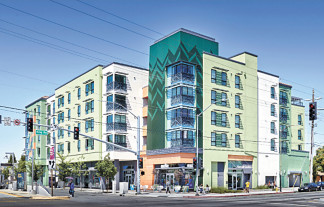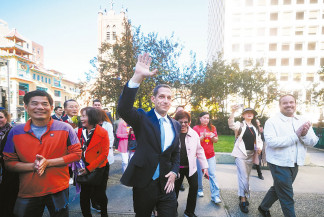By Mayor London Breed
My fellow San Franciscans,
San Francisco is a city with the talent, the tools, and the innovative spirit to continue to be the economic heart of the Bay Area and California. Our work to revitalize Downtown, strengthen our economy, and remain an economic leader requires us to change how we structure our taxes. We can set our business taxes to both deliver the important services we all rely on while also making us more competitive to attract and retain business.
That is why in partnership with Board President Aaron Peskin and Supervisor Mandelman, we announced our next steps in the process to reform San Francisco’s business taxes, with a goal of placing a measure on the ballot in November 2024. A report issued by Treasurer Jose Cisneros, Controller Ben Rosenfield, and the City’s Chief Economist Ted Egan analyzed the key vulnerabilities of San Francisco’s business tax system in the context of our post-pandemic recovery.
The report found:
Business tax revenue increasingly relies on the technology, financial services and related office industries. These industries have embraced remote work after the pandemic, and reduced the amount of office space they lease, both in San Francisco and elsewhere. In this context, the City’s high business tax burden, compared to alternative Bay Area office locations, may make it vulnerable to large taxpayers consolidating offices outside of San Francisco.
Working from home can have a direct effect on how much tax a business owes the City, given the mechanics of how current taxes are calculated. Remote work has a sizable fiscal impact on the City’s revenue.
The City’s tax revenue is increasingly reliant on commercial property, through its Commercial Rents Tax, and Transfer Tax. Remote work is likely to reduce the rent and value associated with commercial property, which will lead to future revenue weakness for the City.
Voter-approved tax measures, along with structural changes in the city’s economy, have created a highly progressive system in which the largest five businesses — who make up 0.04% of business taxpayers — pay 24% of the revenue. In addition to the risk of these businesses leaving the city, such a system is potentially unstable and runs counter to the policy goal of broadening the tax base to promote revenue stability.
To initiate next steps in reforming the City’s business tax structure, we requested that Treasurer Cisneros and Controller Rosenfield convene a process with the business community and other stakeholders to develop specific reform recommendations. The process will result in a public report back to me and the Board of Supervisors by late 2023, to frame the development of a measure for the consideration of the voters in November 2024.
Examining and reforming business taxes is a key step in the City’s efforts to revitalize Downtown. This includes implementing policies and a range of policies laid out in my Roadmap to Downtown San Francisco’s Future, which is the City’s plan to transform Downtown into a stronger, resilient, economic and global destination. The roadmap includes nine key strategies including attracting and retaining a diverse range of industries and employers.
Most recently, I reached an agreement with the Board of Supervisors on tax reform measures to stabilize existing businesses by delaying tax increases and recruiting new ones through tax incentives. The Board has also passed legislation to ease conversion of vacant office space and fill empty commercial space in the Downtown and Union Square areas.
This work will require partnership between City Hall, the business community, and stakeholders across the City — and it’s critical we start this process now.
Please add me on WeChat for updates and resources: londonbreed.
Sincerely,
London N. Breed
Mayor










